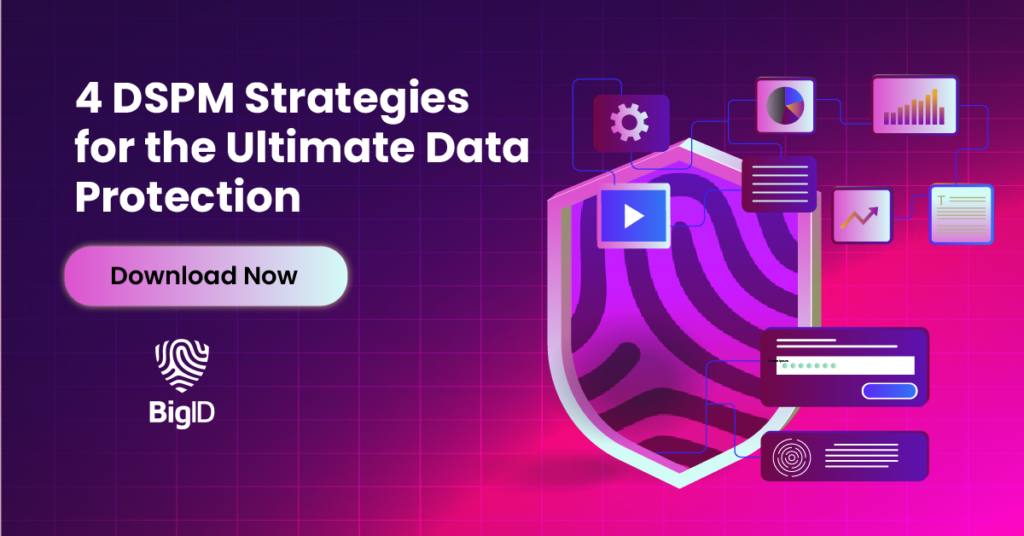Over the past few years, Data Security Posture Management (DSPM) has gained serious traction in the cybersecurity world. The idea is simple: give organizations visibility into their most valuable and most vulnerable data.
But in practice, most DSPMs fall short.
The Problem with Most DSPMs
Many DSPM tools make bold promises, but they come with three critical limitations:
- Limited coverage: They only scan a narrow set of cloud data sources, leaving large blind spots across SaaS, dev environments, and on-prem systems.
- Shallow scanning: They provide high-level summaries without enough detail to know what to prioritize or where to take action.
- Lack of actionability: They identify problems but provide no way to resolve them through the platform.
This approach leaves organizations with more alerts than answers. It’s like reporting a fire somewhere in New York City without saying which borough it’s in. There’s no way to respond effectively.
BigID Does DSPM Differently
Not all DSPMs are the same. BigID was built to go beyond surface-level visibility. It is designed to help organizations both find and fix their data risk.
Here’s how BigID stands out:
Broad and Deep Coverage
BigID can scan across the full range of data environments. This includes cloud, SaaS apps, dev environments, and data centers.
Smarter Risk Prioritization
BigID doesn’t just confirm that sensitive data exists. It shows the relative concentration of risk so teams know where to focus. Unlike other tools, BigID supports full scans and detailed insights, not just summaries.
Actionability That Works
This is where BigID leads. Most DSPMs leave you with a list of issues. BigID gives you the tools to resolve them.
- Identify specific types of sensitive data like PII, PHI, or SOX, not just general categories.
- Remember the exact location of each finding across databases, folders, buckets, or files.
- Allow secure previews so data owners can validate findings themselves.
- Provide remediation options directly in the product, including access controls, masking, deletion, and more.
- Support both centralized remediation by security teams and delegated remediation by data owners or dev teams using RBAC.
- Integrate with Jira, ServiceNow, and SOAR tools like Palo Alto Cortex for smooth, usable workflows.

Why Jira Tickets Alone Fall Short
Most DSPMs can generate a Jira ticket when they find risky data. But that’s where the process breaks down.
Here’s why:
- Data owners, not security teams, usually manage databases, folders, or buckets.
- These data sets can span terabytes and millions of rows.
- Most DSPMs only provide a general label like “PII found,” with no specifics.
The result? A data owner gets a vague alert that something sensitive might exist somewhere in a huge dataset. They don’t know what it is, where it is, or what they should do about it. That Jira ticket ends up being a dead end.
BigID changes that by embedding the necessary detail, context, and action directly into the process. Tickets are no longer dead ends. They’re launch points for real remediation.
Visibility Without Action Is Liability
DSPM should not stop at detection. Security teams need more than a list of issues. They need to fix them before they become legal, reputational, or financial risks.
BigID goes further than any other DSPM to deliver actionability at scale. The result is a solution that helps organizations reduce risk, not just report it.
Want to learn more about BigID’s industry-leading DSPM? Schedule a 1:1 with one of our DSPM experts today!



